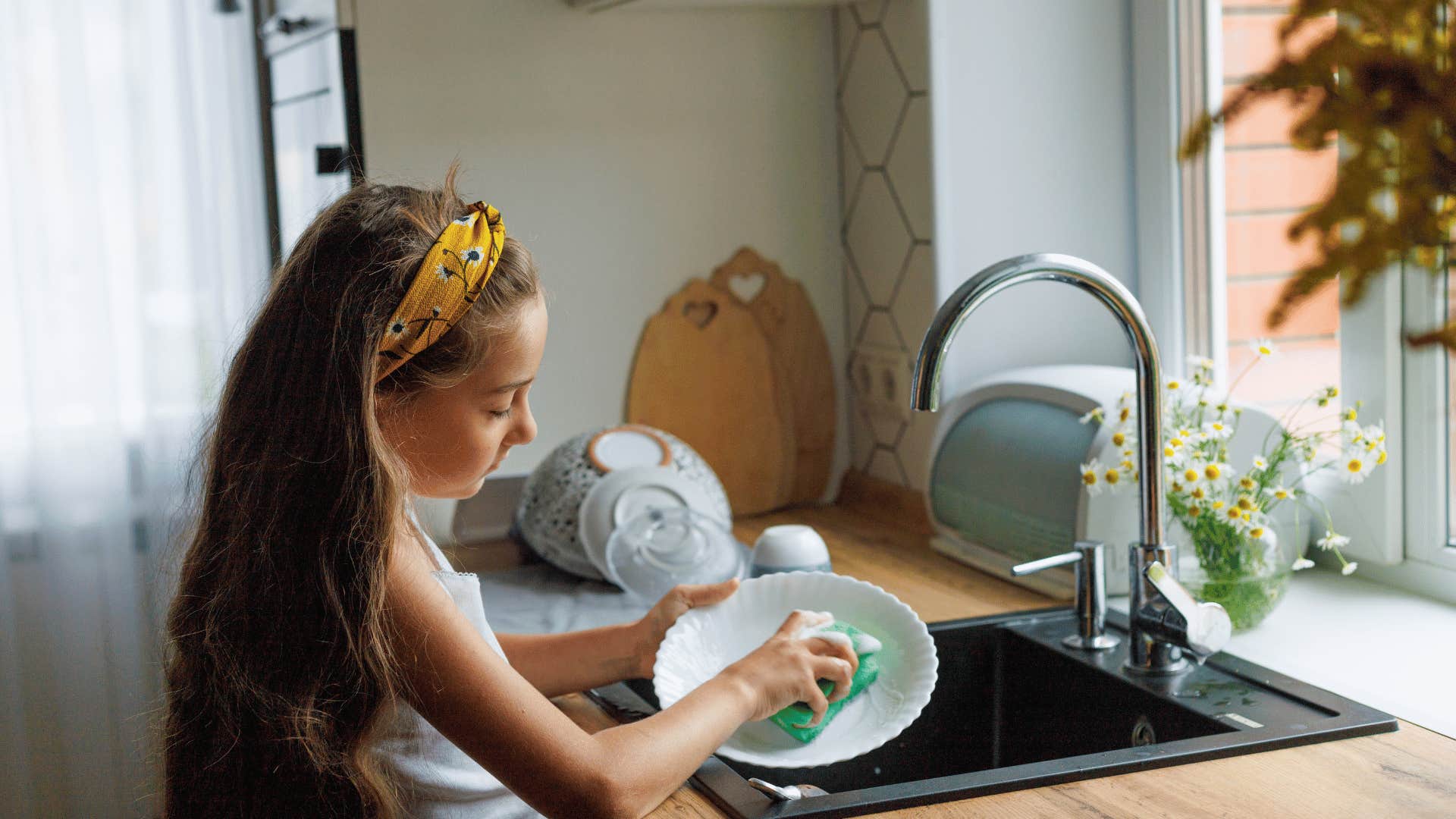Your Parents Did An Amazing Job Raising You If You Had These Old-School Rules In Your Home
Your parents did a pretty good job if they enforced these old-school rules under their roofs.
 hipokrat | Canva
hipokrat | Canva Parenting and child development experts can teach many lessons. However, sometimes, the best teacher is just observing and reflecting on our own child’s behavior. Raising kids is one of the world's most demanding, rewarding, and complex jobs — and rising to the rank of 'amazing parent' is a high bar that's oftentimes hard to reach.
Every parent wants their children to succeed, be happy, and grow up to be kind, responsible adults. But the road to getting there can be bumpy, with many twists, turns, and surprises — but sticking to and enforcing a few old-school rules (many that may sound familiar to you from your childhood) can raise you from average to amazing parent in no time.
Your parents did an amazing job raising you if you had these old-school rules in your home:
1. 'Never invalidate anyone's feelings and experiences'
 Inside Creative House / Shutterstock
Inside Creative House / Shutterstock
Even though some of their interactions sound, well, childish, to them it is monumental. Don't diminish their problems because you have the wisdom of experience. Listen to them, and offer help when necessary.
2. 'Our rules for each child may change based on maturity and neccessity'
 DimaBerlin / Shutterstock
DimaBerlin / Shutterstock
One of the biggest complaints I've heard my students make is that their brother or sister is treated drastically differently than them. If children need separate rules, explain the reasoning to them without relying on outdated excuses.
Clearly defined rules that apply to all teens in a household are essential for fostering a sense of security, promoting healthy boundaries, teaching responsibility, and supporting positive adolescent decision-making. A 2022 review found that consistent structure helps them navigate the complex changes of adolescence and develop self-regulation skills.
3. 'Curfew is non-negotiable, but can change based on trust'
 SeventyFour / Shutterstock
SeventyFour / Shutterstock
Different situations should require a flexible approach to curfew. A school dance should have a different finish time than a movie out with friends. Besides saving you from an argument, negotiating each event will make you look like the flexible and considerate parent who trusts your kid.
4. 'Chores will reflect real-life skills'
 Julhabiby / Shutterstock
Julhabiby / Shutterstock
In what will feel like no time at all, that surly teenager will be off at college on their own. Chores, besides helping you around the house, should reflect real-life situations.
It's not enough that they sort the laundry; they should know how to run a load and remove stains as well. The goal here is to teach children to be self-sufficient.
Assigning children chores that mirror real-life skills is beneficial because it fosters a sense of responsibility, independence, and essential life skills like time management, problem-solving, and decision-making. This ultimately prepares them for adulthood and contributes to their overall well-being and success later in life. A 2022 study even linked consistent chores to improved self-esteem, better-coping mechanisms, and increased resilience against challenges.
5. 'Free expression is welcome and encouraged'
 fast-stock / Shutterstock
fast-stock / Shutterstock
Not every child is going to want to color their hair or put posters on the wall, but every child needs a way to express themselves.
Consider letting them have a collection of something (old records, coins, etc.), paint their rooms, or take an art class. A little goes a long way.
6. 'We'll ask to speak to the parents of kids you want to hang out with'
 Yuri A / Shutterstock
Yuri A / Shutterstock
If you get a bad feeling about their friends, you're probably right. Since teens are usually on their best behavior with parents, if your Spidey senses are telling you that a friend is a bad egg, trust your gut. Ask questions, be observant, and, if necessary, speak to their parents.
Research suggests that parents should trust their intuition about their children's friends because they often have a deep understanding of their child's behavior and can pick up on subtle changes in mood or demeanor that may be linked to opposing influences from certain friends. This is often referred to as mother's intuition. It is supported by the idea that parents are highly attuned to their child's needs and can identify potential risks or concerning patterns in their interactions with others.
7. 'If your grades are dropping, we'll ask to speak to your teachers'
 Drazen Zigic / Shutterstock
Drazen Zigic / Shutterstock
The school takes up seven to 10 hours of their day. That's a lot of time socializing and working. Teachers are a great resource for communication, and more importantly, it's great to be aware of what the students are doing academically.
8. 'You can talk to us about anything'
 Yuri A / Shutterstock
Yuri A / Shutterstock
You don't have to like whatever band they're into, but you should let them talk to you about it. Go to the events. If you hear something interesting that they would want to know, share it with them.
Parents taking an interest in their children's interests significantly boosts their self-esteem, fosters a stronger parent-child bond, encourages curiosity and learning, and can positively impact a child's overall development by validating their passions and providing opportunities for exploration and growth.
Research by Stanford University concluded that while supporting a child's interests is crucial, it's essential to avoid pushing them too hard or taking over the activity, allowing them space to explore independently.
9. 'We will let you make mistakes and we will let you fail'
 fast-stock / Shutterstock
fast-stock / Shutterstock
Teenagers are kings of learning what they can get away with. If they forget their big project at home or skip a due date, don't yell at the teacher on their behalf or leave your job to bring it to them. It's okay for them to take a couple of minor losses, and it will help make them more aware and stronger students in the future.
10. 'We will always be as honest as we can with you, and we expect the same'
 Branislav Nenin / Shutterstock
Branislav Nenin / Shutterstock
Teenagers hate dishonesty, and it can be especially damaging when coming from a parent. Be as honest as you can with them, and if they ask you for your opinion, give your honest assessment. If you're honest with them when the truth is uncomfortable, they'll believe you when you tell them something good.
According to a 2024 study, parents should be honest with their children because lying to them can negatively impact their development by undermining trust, promoting dishonesty in the child, and potentially harming the parent-child bond. Children learn by modeling their parents' behavior, so when parents lie, children are likelier to lie, leading to potential social and emotional issues later in life.
Laurel Niedospial is a freelance writer, copywriter, and contributor to PopSugar.

